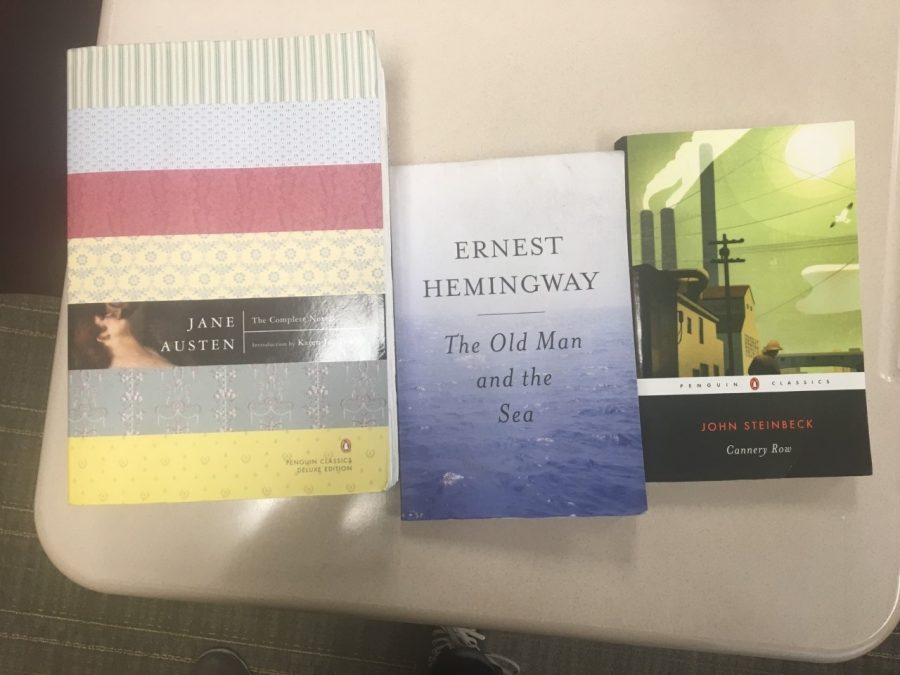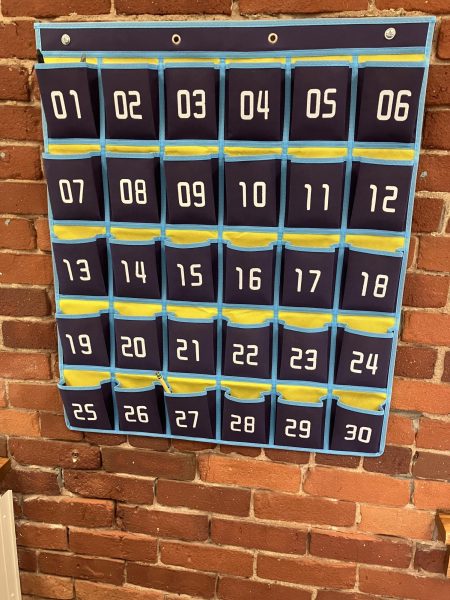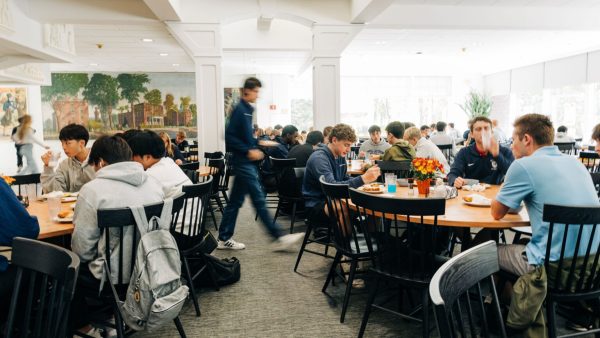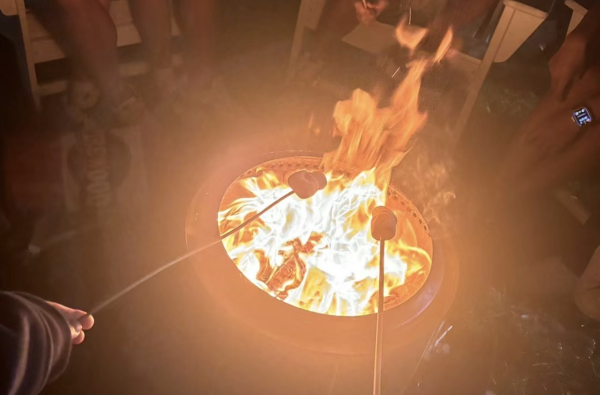It’s Time for the Capstone Project
It’s senior spring and that means the Capstone project is upon us.
Every spring, seniors start working on their Capstone, which is a trimester-long reading, research and writing project. Before spring break, standard English 12 teachers give their students a list of authors to pick from. After break, the students will each present their chosen author to a panel of English teachers, explaining why they would like to do their Capstone on the author.
Once their choice of author has been approved by the teachers, the student will then read two or three books by the author and write a 15-page research paper about the books and the author.
The available list of authors includes: Jane Austen, James Arthur Baldwin, Thomas Coraghessan Boyle, Kate Chopin, Don DeLillo, Junot Diaz, William Faulkner, Ernest Hemingway, Jack Kerouac, Cormac McCarthy, Herman Melville, Toni Morrison, George Orwell, Edgar Allan Poe, Jerome David “J. D” Salinger, John Steinbeck, Mark Twain, and Kurt Vonnegut Jr.
Some famous works from these authors are: Pride and Prejudice, Song of Solomon, The Catcher in the Rye, and Animal Farm.
Many seniors wonder why they are required to do a project as intense as Capstone at a time when senioritis hits them the hardest.
English teacher Andrew Shelffo told The Willistonian that the Capstone is meant to empower students and prepare them for college.
“The Capstone tries to find a balance between an independent level of work for students so that they can get the experience along with some scaffolding and support from English teachers.”
It is English teacher Ashley Jenkins’ first year being a part of the Capstone process and she believes that an important part of the project is finding and building your own voice.
“The only way for you to build that is to start thinking more so for yourself, not what we want you to think or to regurgitate the information that we’re giving you, but more so finding the answer for yourself and digging through it,” she said.
Jacob Rivers, who has taught the Capstone project before, agreed with Jenkins’ point and also emphasized the importance of critical thinking and analysis.
“English as a subject does more and has more nuances to it,” he said. “So, to do a Capstone project that is self-directed, it makes you engage with that act because part of being prepared from the English standpoint is being able to come up with something original that is coming from your mind.”
Sarah Sullivan ’19 wishes some things could be changed about the Capstone process.
“I am most nervous about time management for this project. I wish we could have chosen our author and books before break so that I could have gotten a book read over break when I had more free time.”












